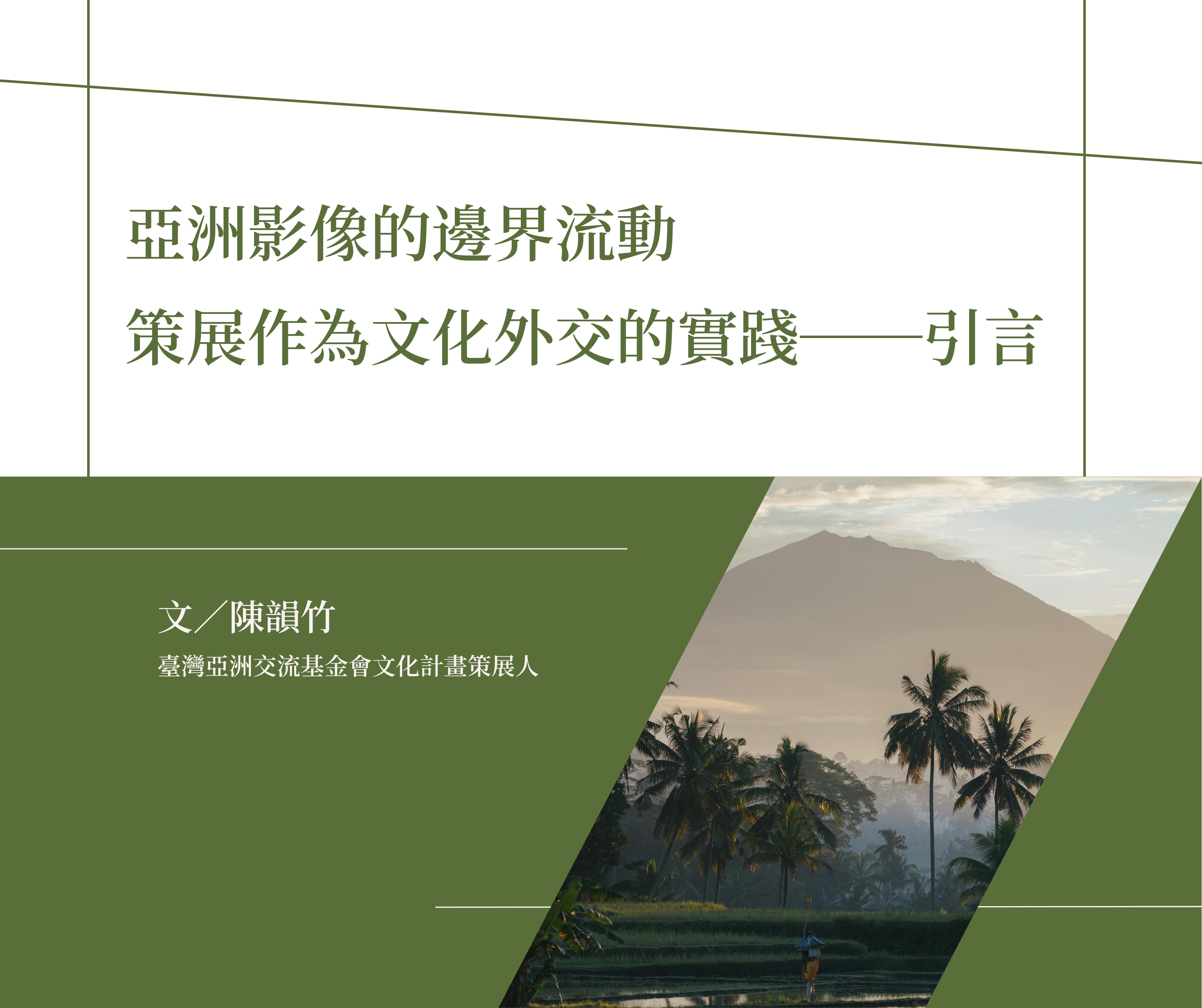Author: Angie Chen (Coordinator for the Taiwan-Asia Exchange Foundation Culture Program)
When it comes to global cultural exchange in the modern age, we are constantly searching for platforms and methods to engage with the public. Cultural diplomacy in today’s world has shifted from one-sided propaganda to multi-directional communication, an interactive process that emphasizes diverse participation and cross-cultural understanding. Film festivals, as a venue for collective viewing and public dialogue, are a channel for building understanding and resonance between films and the audience.
The Taiwan-Asia Exchange Foundation (TAEF) has long dedicated itself to promoting cultural exchange and cross-border cultural collaboration. In the past, it has worked hand in hand with numerous partners to co-organize the New Southbound Policy Film Festival. These partners include: National Chengchi University (Reflecting Southeast Asia Series, 2021), the Ministry of Foreign Affairs (Imagery of the New Southbound Policy (NSP) Film Festival, 2022), and the Singapore Trade Office (Singapore Film Festival, 2024). In addition, TAEF independently organized the Vietnam Film Festival in 2024. For this film festival, we selected works from Southeast Asia and South Asia that are culturally profound and creatively representative. We introduced them to a Taiwanese audience in hopes of fostering greater understanding, resonance, and discussion.
Looking back at the development of Asian cinema history, we can see that multi-national network collaborations had already begun many years ago. This year, we are honored to invite the Taipei Film Festival to co-curate the exhibition. Continuing its long-term focus and promotion of Asian films, we have curated the “New Southbound Vision” exhibition to discover cutting-edge Asian works, making them an important spectacle in the film festival.
In comparison with Western narrative traditions, Asian films display a unique style in the transformation of time, emotion, historical memory, and local experience. Culture researcher Chris Berry once proposed the concept of “postcolonial spectatorship,” a reminder that viewers should consider the experiences of Asian creators and Asian audiences . This is exactly one of the core issues we aim to address in this curatorial work.
At the “New Southbound Policy Focus Forum,” Indonesian director Tumpal Tampubolon shared that as an archipelago country, almost every island in Indonesia has its own ghost story. These narratives, rooted in local beliefs and cultural memories, not only demonstrate the rich folklore in Southeast Asia, but also highlight the narrative differences between Asian films and mainstream Western films. Informed by distinct backgrounds, Asian films have long created their own unique narrative perspectives that transcend Western concepts of “otherness” and “periphery.”
Taiwan is a cultural node at the intersection of East Asia and Southeast Asia. Although not located in the geographic center of the globe, Taiwan’s peripheral position gives it the potential to become a cross-cultural node, a platform for an array of Asian narratives, connecting dialogue and creative possibilities between different cultures.
The “people-centered” cultural diplomacy we seek is not just about shaping our international image, but also about understanding the identities of local diverse ethnic groups. The shift from pejoratives like "foreign brides” and “foreign workers” to proper terms like “new immigrants” and “migrant workers” symbolises that Taiwan has made significant progress in recognizing and including them within our understanding of diverse ethnic groups. Nevertheless, during my curatorial experiences, I have come to realize that Taiwanese audiences are far less interested in Southeast Asian and South Asian films than in the more familiar Western, Japanese and Korean films. This suggests that there is still room for Taiwan to expand and deepen its cultural imagination and genuine understanding of our southern neighbors. Whether in the construction of Asian identity or the integration of diverse ethnic groups, Taiwan urgently needs greater imagination and a broader cultural perspective.
At the opening ceremony of the film festival, Ms. Syajaratud, Director of the Malaysian Friendship and Trade Center, quoted a Malay proverb: “When we truly know and understand something, it is easier for us to like, or even fall in love with it.” We believe that “communication is a way to promote mutual understanding.” Whether it is achieved through language, literature, or culture and artistic expressions, we hope that the people of this land will reshape Taiwan’s diverse and integrated ethnic identity through mutual understanding.
The “New Southbound Policy Vision” is not just a film festival; it is also a cultural initiative responding to geopolitical changes. The TAEF has long been committed to cultivating artistic and cultural exchange in Asia. From literature and art to film, we promote a model of mutual understanding and public collaboration, not a one-sided cultural presentation. This film festival continues the tradition of interacting with artists from Vietnam, Singapore, and the Mekong River Basin, elevating culture to something that’s not just as a medium for conveying content, but as a vehicle for building relationships and paving way for action.
